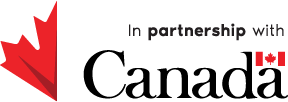Stand Up for SRHR
The Situation
Despite great strides in reducing maternal and child mortality, in some countries, like Uganda and Mozambique, obstacles still prevent women, girls, and people with different sexual orientations and gender identities from enjoying their sexual and reproductive rights fully.
Issues like unequal gender and social norms, traditional beliefs, and social stigmas about sexuality can negatively impact the health and well-being of women, girls, and other diverse groups. These challenges make it harder for people to use contraception and other family planning resources, potentially leading to high teenage pregnancy rates.
In both countries, many young women give birth before they reach adulthood. In Mozambique, 142 out of every 1000 women aged 15 to 19 have given birth—it's one of the highest rates in the world. In Uganda, 33 per cent of women give birth before they turn 18, and the prevalence of girls getting married before they become adults is more than 40 per cent.
Mozambique is one of the eight African countries where abortion has been legalized without restrictions in the first 12 weeks of pregnancy and in cases of rape, incest, and fetal anomaly. However, unsafe abortion persists. It's one of the country's leading causes of maternal death.
In Canada, the challenges facing young people around sexual education and reproductive health services may not be the same as in Uganda and Mozambique, but they are still significant. The availability of these services varies depending on where a person lives, and for some, accessing abortion and contraceptive care can be challenging. Unfortunately, comprehensive sexuality education (CSE) is not uniform across the country and doesn't always meet international standards.
DETAILS
LOCATION
Mozambique, Uganda, Canada
DURATION
7 years (2021–2028)
Lire la description du programme en français (PDF).
OUR SUPPORTERS
This project is undertaken with the financial support of the Government of Canada, provided through Global Affairs Canada, and the generous Canadian public.

What are we doing?
STRENGTHENING SYSTEMS
Training healthcare providers to deliver inclusive, youth-friendly, rights-based, and accountable healthcare to improve access to sexual and reproductive health information and services.
BREAKING BARRIERS
Engaging diverse groups of women and girls, men and boys, to address discriminatory social norms, gender violence, early pregnancy, child marriage, and the sexual and reproductive health and service needs of LGBTIQ+ populations to overcome the barriers preventing people from enjoying their rights.
ADVOCACY
Supporting civil society organizations in Uganda, Mozambique, and Canada to work together, advocate for change, and share information while promoting Canadian youth involvement in global sexual and reproductive health and rights.
What do we hope to achieve?
Stand Up for SRHR harnesses the power of its partnerships to support local and grassroots organizations in Mozambique and Uganda. Together, we'll boost awareness and knowledge of sexual and reproductive rights and available health services.
We're supporting local women's rights and youth-led organizations to strengthen advocacy for equitable, accountable, evidence-based policies, laws and services related to SRHR. Our engagement with women and girls and men and boys in Mozambique and Uganda will build more positive attitudes toward SRHR and women's rights.
We want to ensure everyone in the communities where the project unfolds has access to high-quality, inclusive, and accountable sexual and reproductive healthcare that meets their needs. This includes services related to family planning, abortion, sexual health testing, prenatal care, and support for victims of sexual and gender-based violence.
Stand Up is also working to raise the profile of sexual and reproductive health and rights across Canada. We'll support youth-led sexual health and rights advocacy, mobilization, and educational campaigns.
Our project partners
Canada
Mozambique
- Associação Lambda (Lambda)
- Associação Moçambicana da Mulher e Apoio a Rapariga (OPHENTA)
- Associação Moçambicana para o Desenvolvimento da Família (AMODEFA)
- Centro de Pesquisa em População e Saúde (CEPSA)
Uganda
- Centre for Health, Human Rights, and Development (CEHURD)
- Femme Forte Uganda (Femme Forte)
- Makerere University School of Public Health (MakSPH)
- Reproductive Health Uganda (RHU)